OUR STORY
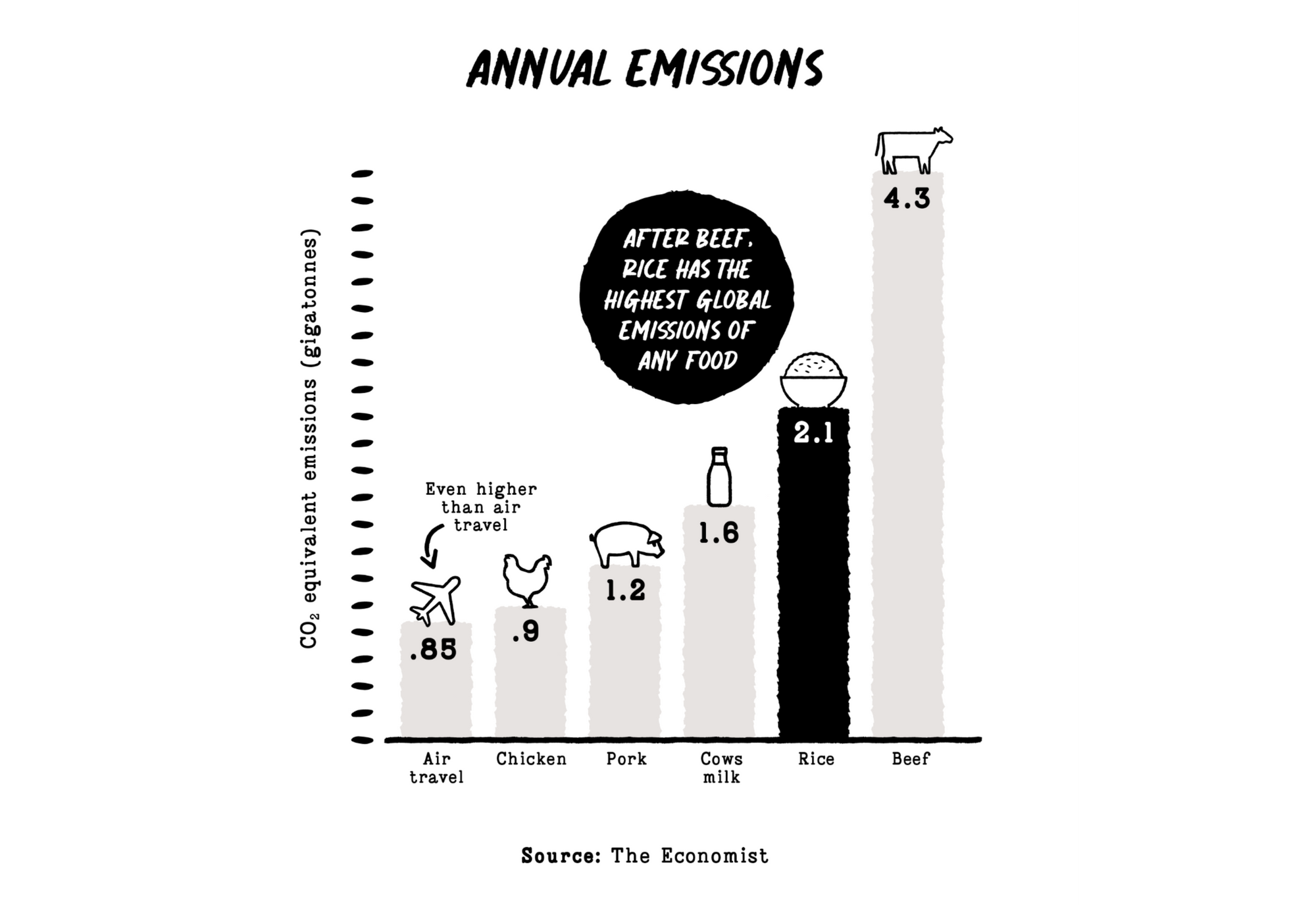
Who knew rice was so bad?
As someone who eats a lot of rice at home, I was shocked to learn that rice has the second highest emissions footprint of any food globally - only beef is worse. My curiosity led me to dive deeper into the reasons behind this, so I started learning about rice farming. I discovered that most rice is grown in a way that uses a huge amount of water and produces methane – a powerful ‘greenhouse’ gas.
But I also discovered that farmers and scientists had been working together for years to find a solution – a farming method that uses less water, produces less methane and is even higher yielding. Great news for the planet and great news for rice farmers.
I wanted to start buying sustainably farmed rice but I couldn’t find it anywhere in the UK. In fact none of the major brands were even talking about the emissions problem which really annoyed me. That’s when I decided to look into it further.
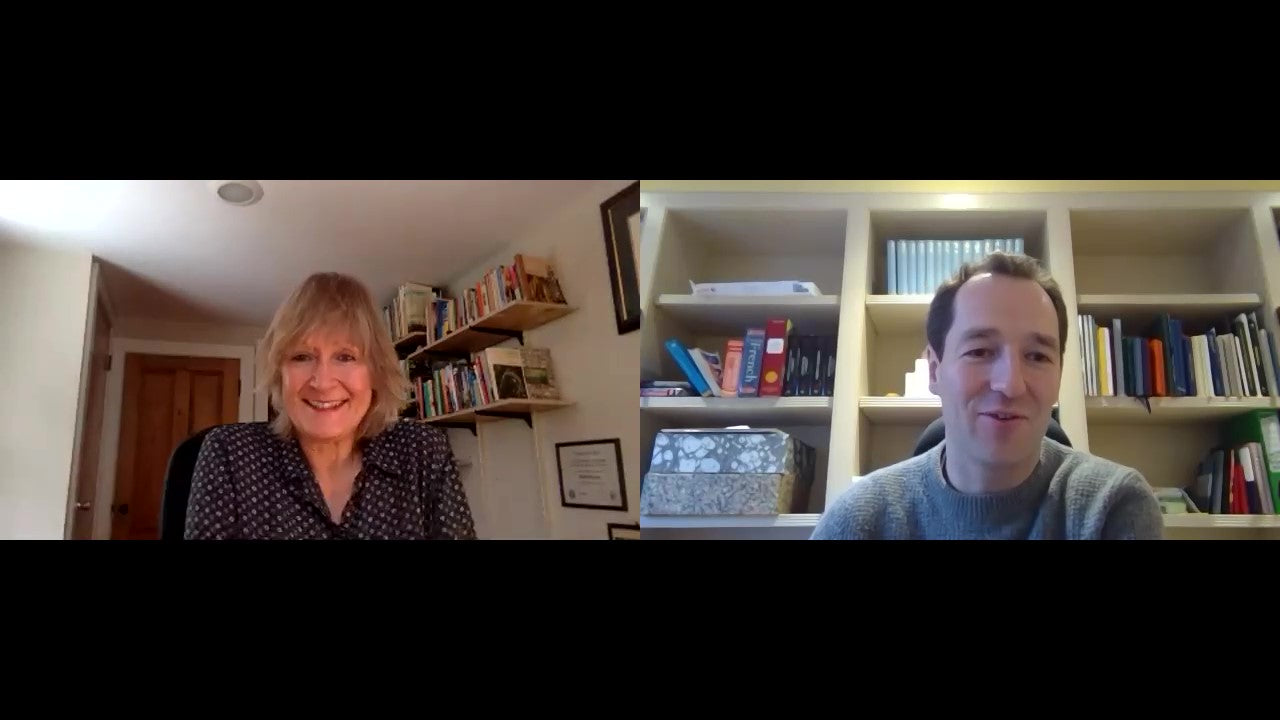
Learning from the experts
I began contacting leading experts in the field, and was lucky enough to meet Erika Styger. Erika leads the Climate Resilient Farming team at Cornell University and her life’s work has been developing sustainable rice farming around the world. She was kind enough to give me her time and help me really understand the farming concepts, the wider supply chain and the challenges faced by smallholder rice farmers. Erika also introduced me to her contacts in India so I decided it was time to travel to India and connect directly with the farmers.
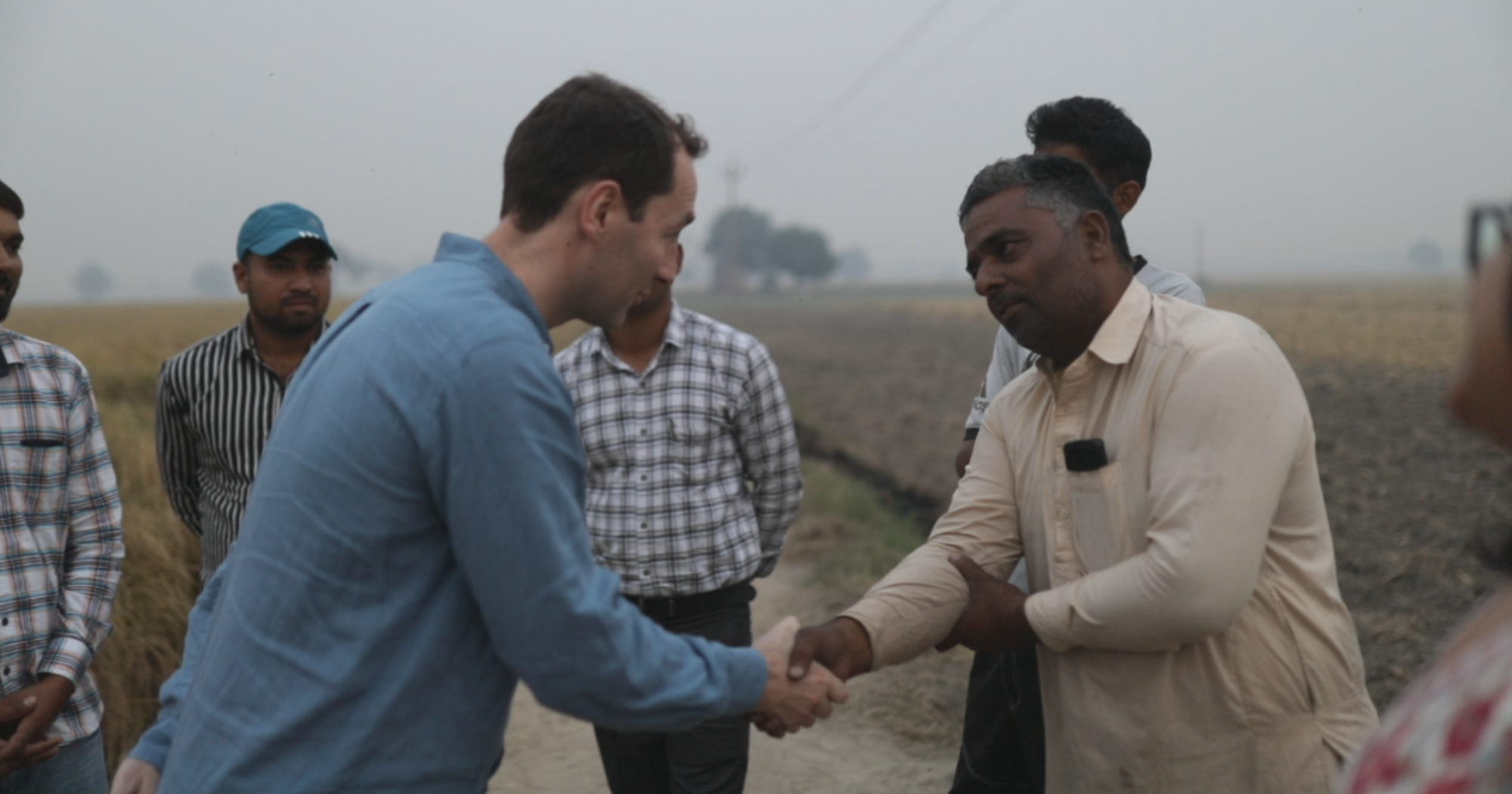
India bound - seeing it for myself
I went to Haryana state in northern India and over three days I met the farmers and researchers who are pioneering sustainable rice farming in the region. The researchers explained how they collect data from the farms to monitor emissions and other environmental metrics. And the results were clear – on average the farmers had reduced their emissions by 49%.
Meanwhile the farmers, (like Sushil, pictured) all proudly shared the same experience with me: by following the sustainable farming techniques they had improved their yields by an average of 10%. And their rice was amazing! They take incredible care of their crops and grow a heritage variety of Basmati that was better than anything I’d tasted before.
Through these conversations, and seeing the different farming techniques myself, it was clear that sustainable rice farming was already having a hugely positive impact. I left India determined to make this sustainably farmed rice available in the UK.
(And by the way, if you’ve tried our rice there’s a good chance it came from Sushil’s farm.)
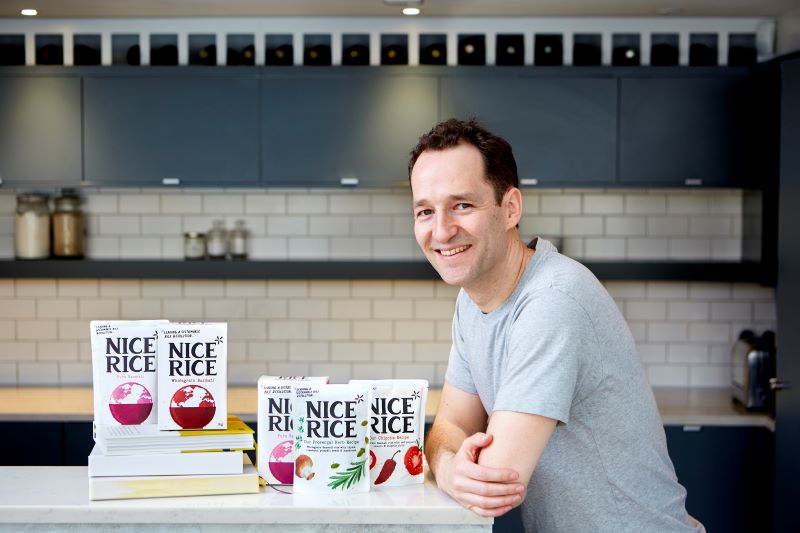
NICE RICE is born!
When I returned home, I started sharing my idea for a new rice brand with friends. Three of them, independently, suggested the name "NICE RICE". At first, I thought they were joking, but the name made me smile, and I couldn’t think of anything better. So, NICE RICE it was.
With the brand name settled, I set to work figuring out how to bring that delicious rice from Haryana to the UK, and found partners to mill, ship and pack our rice. I also started working with top food developers on some delicious recipes for our cooked rice pouches… I wanted to make sure our rice was big on flavour AND small on environmental footprint.
After two years of hard work, and with the support of an army of amazing people, NICE RICE launched in May 2023.
And that’s when our real journey began.
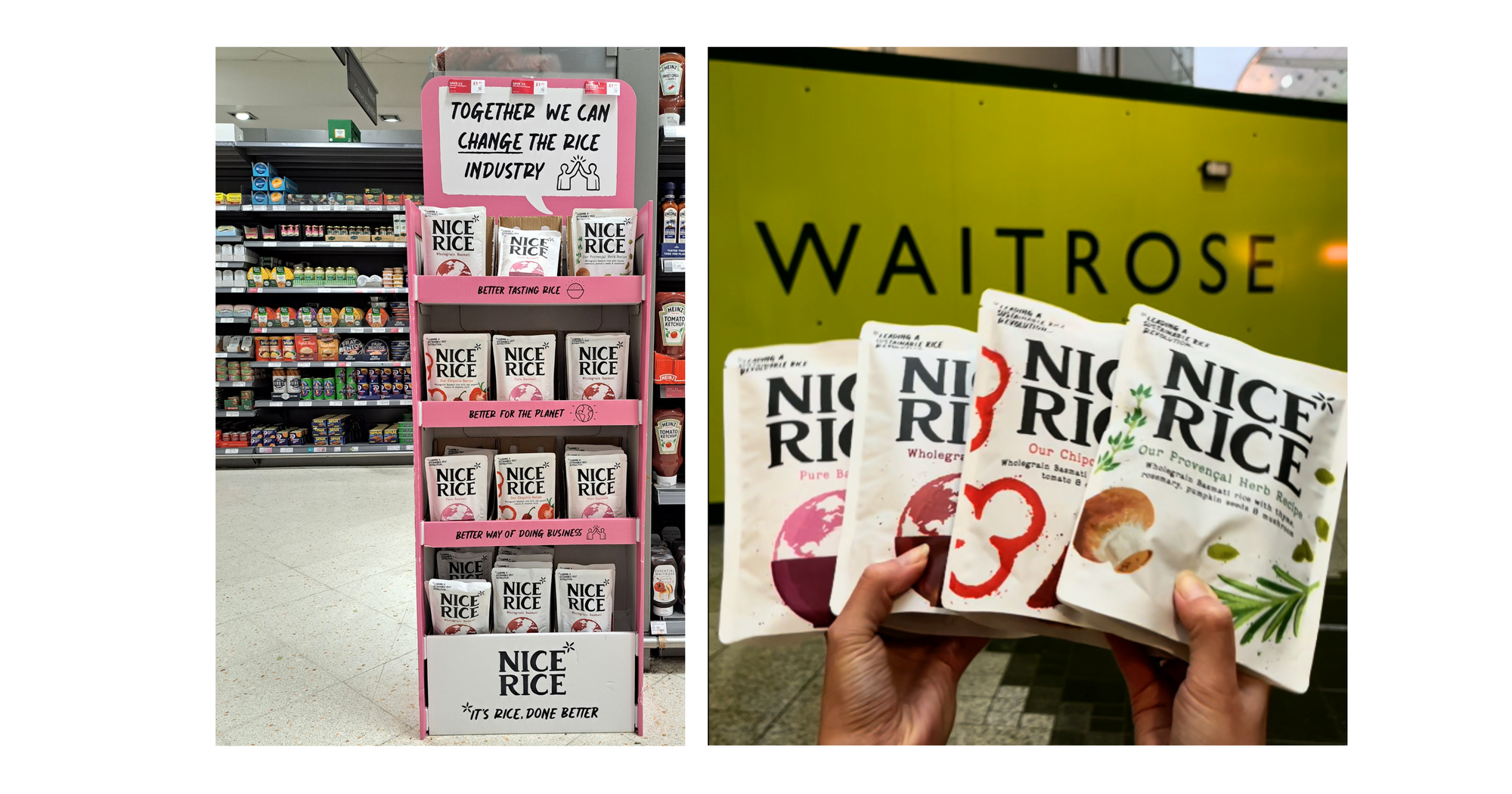
NICE RICE goes national
We secured a major listing with WAITROSE as our very first customer in June 2023…. talk about jumping in the deep end. Thankfully Waitrose shoppers are loving our rice and the recognition hasn’t stopped there—NICE RICE went on to Great Taste Awards for both our dry and cooked rice, and gold in The Grocer's New Product & Packaging Awards 2023.
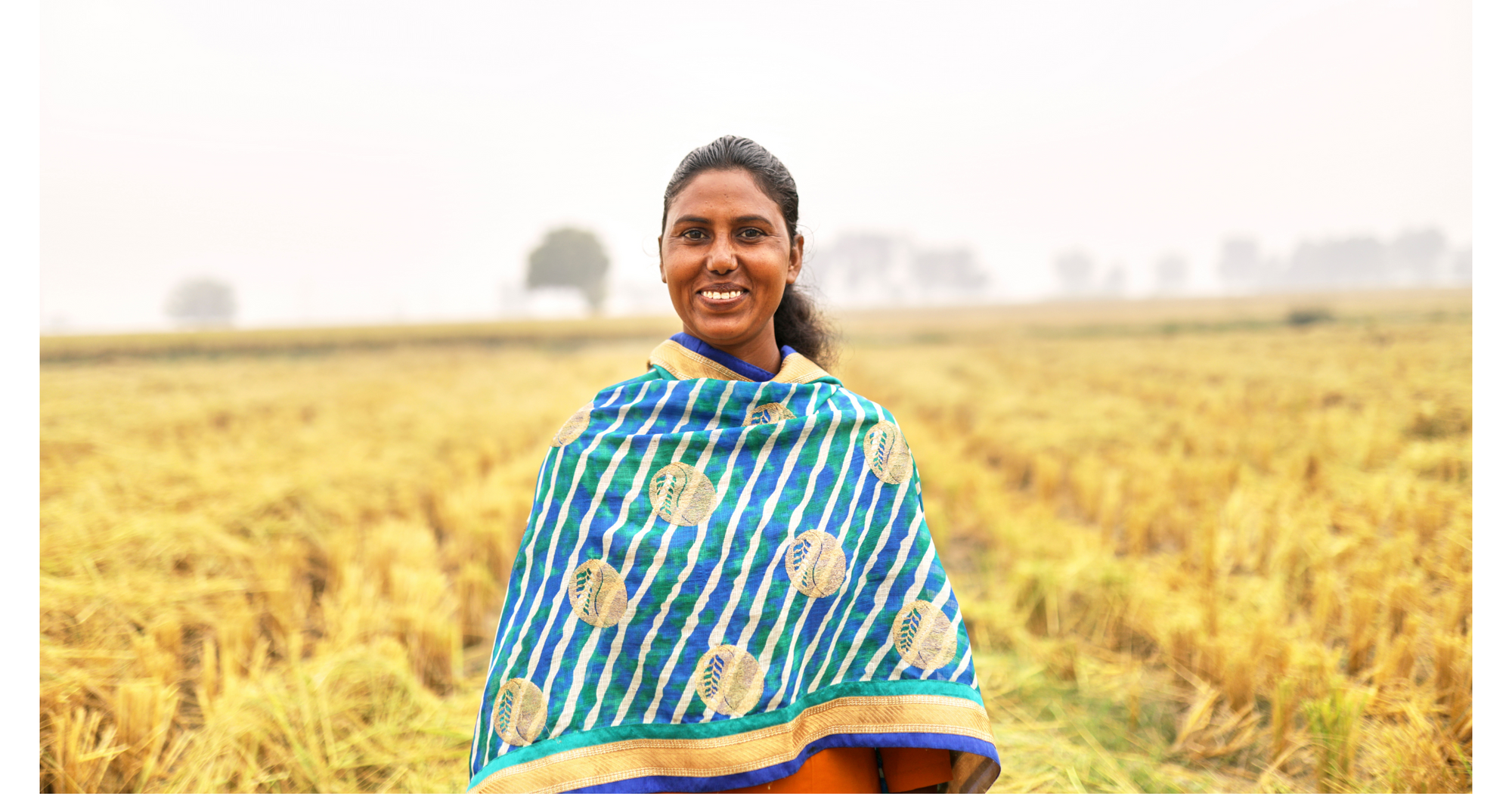
The Nice Rice Foundation is created
At the end of 2023, we established the Nice Rice Foundation. We donate 2% of our annual revenues to the Foundation and this funding directly supports projects aimed at promoting sustainable farming practices as a way of improving the livelihoods of rice farming communities.
As we grow we’ll be able to help more farmers learn sustainable rice farming techniques – improving their livelihoods and reducing the environmental footprint of the rice industry at the same time.
We’re thrilled to share that we made our first donation in
2024.
Here's where you can find us
Interested in stocking NICE RICE? Get in touch at:
trade@wearenicerice.com


